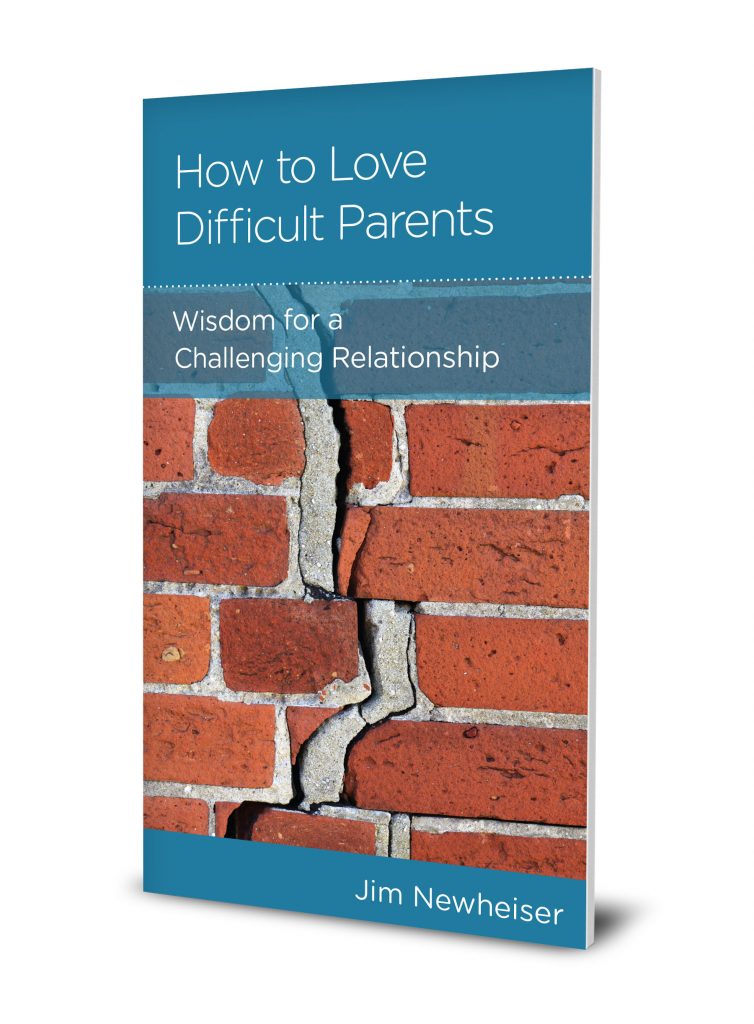As a biblical counselor, one of my passions is to point my counselees to helpful biblical resources related to their struggles. Long after our one-on-one conversations are over, I want them to have tools in their hands for continued growth. An issue carries special urgency for me if I can’t find much written about the particular topic. More than once this lack of resources has motivated me to search the Scriptures to find helpful and wise answers which I can share with others.
Recently as I have encountered many adult children who are struggling in their interactions with their parents, I have realized that there are few resources to help them to wisely navigate the challenges they face. It is very common for parents to seek counsel about their relationships with their children, and there are many excellent books which help equip parents at all stages of parenting. There are not, however, many resources which speak to the challenges adult children commonly face in their relationships with their parents. Let’s look at some of the many scenarios you may be facing and how you can begin to wisely think through these dilemmas.
It Isn’t Unusual
Do you find yourself in one or more of these most common situations?
- You are a single adult in your twenties or thirties whose parents are still trying to micromanage your life, not recognizing that you are “of age” (John 9:23) and responsible to make your own life decisions. This challenge is compounded when you still live with your parents.
- You are married but your parents continue to make excessive demands of your time and attention, failing to respect that you have left father and mother to be joined to your spouse (Genesis 2:24).
- You are reluctant to leave your children alone with grandparents who refuse to follow basic rules (for a humorous take watch this).
- Your parents separate or divorce after you’ve grown up and then pressure you to take sides.
- You wonder what kind of relationship you should have with parents who engage in destructive sins such as drunkenness, hoarding, gambling, and sexual immorality.
- Your financially irresponsible parents expect or demand monetary help.
- Your elderly parents insist upon maintaining their independence by continuing to drive a vehicle even though by doing so they put themselves and others at risk.
- You are overwhelmed as you serve as caregivers for your elderly parents who live with you.
- You do not know how you should interact with parents who abused you or failed to protect you from abuse in the past.
It Gets Complicated
While we are convinced that the Bible is sufficient to give us wisdom to navigate these relationships (2 Timothy 3:16-17), we sometimes find biblical principles in tension with one another.
On the one hand, we are called to honor our parents (Exodus 20:12), which includes caring for their needs as they get older (Matthew 15:4–6; 1 Timothy 5:4, 8). We imitate Christ when we sacrificially consider the needs of others above our own (Philippians 2:3–4).
On the other hand, adult children are no longer under parental authority and thus are ultimately responsible to God for the choices they make (John 9:23). Furthermore, we should not allow ourselves to be manipulated by giving in to inappropriate parental pressure, perhaps to the detriment of our own families or our calling in life.
Biblical Principles for Responding
1. Be prepared to quietly overlook many faults and slights, both past and present.
We honor God when we graciously ignore certain unkind comments and inconsiderate actions. “Good sense makes one slow to anger, and it is his glory to overlook an offense” (Proverbs 19:11) and, “Above all, keep loving one another earnestly, since love covers a multitude of sins” (1 Peter 4:8).
2. When your parents’ sins against you are more serious, it may be necessary to gently confront them (Galatians 6:1).
This is necessary when there are weighty unresolved issues, past or present, which significantly affect your ongoing relationship with your parents or their relationship with the Lord. Before confronting them, pray for the right opportunity and the right approach to take (Proverbs 25:11). I also encourage you to carefully plan what you will say (Proverbs 21:5). Most importantly you should come with an eagerness to be reconciled, forgiving them as Christ has forgiven you (Ephesians 4:31–32).
3. Do not please your parents at the expense of your responsibilities to God and/or your spouse.
Some of us are so eager for others to be happy with us that we can be manipulated into giving in to whoever exerts the most pressure. Scripture warns, “The fear of man lays a snare, but whoever trusts in the Lord is safe” (Proverbs 29:25). For example, if your parents are too controlling or if they are disrespectful to your spouse, you may need stand up to them. Our first aim must be to please God (2 Corinthians 5:9).
4. Sometimes it may be necessary to put limits on your relationship with your parents.
For example, if grandparents will not follow the rules to keep the grandchildren safe, then they cannot be left alone with them. Or if a parent becomes inebriated or verbally abusive at a family event, it would be appropriate to leave and to set restrictions upon future gatherings.
5. If you feel stuck in your relationship with your parents, keep pursuing peace (Hebrews 12:14).
Seek godly counsel from church leaders (Proverbs 11:14) who may be able to help you to see the logs which are in your eye (Matthew 7:1–5) or offer other helpful advice. It also may be appropriate to seek mediation between you and your parents from mutually agreed upon counselors (Philippians 4:2–3).
6. There are rare circumstances in which estrangement from your parents is unavoidable.
I have known adult children who have been completely shunned because they refused to be controlled and manipulated by their parents. In other cases, adult children have had to significantly limit contact with their parents for their own safety and/or for the safety of their family.
7. Even if your pain and weariness seem overwhelming, I encourage estranged children to continue to make efforts to move towards their parents, to the extent they can safely do so.
For example, if being together physically is out of the question you may express love by sending cards, photos, and gifts (Romans 12:20–21). “If possible, so far as it depends on you, live peaceably with all” (Romans 12:18). And keep praying that they will be reconciled to the Lord and to you.
The Lord Is with You
It is sad that many adult children struggle in relationships with their parents. Yet we can be thankful that the Lord has given us wisdom in his Word to help us to wisely navigate challenging situations. We also can be thankful that he has redeemed us from the sins of our parents so that we do not have to be controlled by them or fall into their sinful patterns (1 Peter 1:18). The Lord also has incorporated us into his family (Matthew 12:49). Even if our parents fail us, the Lord is with us and will never let us down. “For my father and my mother have forsaken me, but the Lord will take me in” (Psalm 27:10).
How to Love Difficult Parents: Wisdom for a Challenging Relationship
Counselor Jim Newheiser understands the many types of challenges adults may face in their relationship with their parents, whether it be their parents’ financial strain, a struggle to properly care for their home or their health, conflict related to care for the grandchildren, or destructive relational choices.
Photo by Kate McLean on Unsplash






